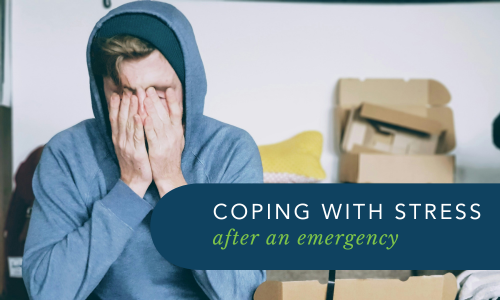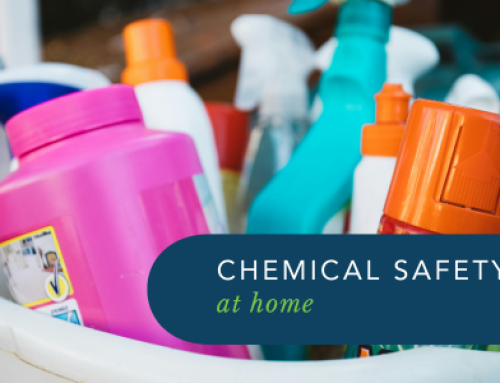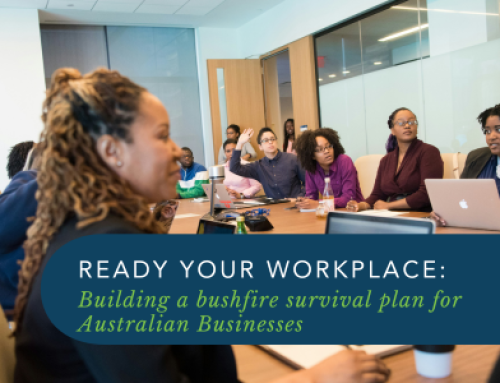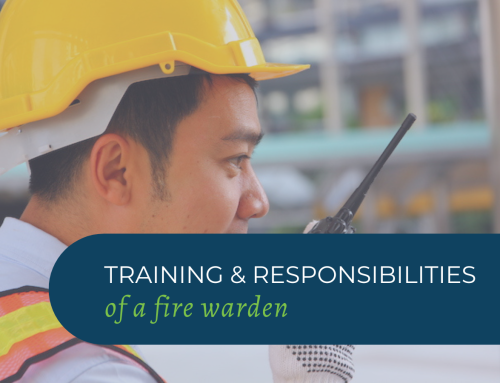Experiencing a traumatic event can have a profound impact on an individual’s mental and emotional well-being. The stress and anxiety that often follow can be overwhelming and interfere with daily life. It is important to recognise that coping or not coping with stress after an emergency is a normal and natural process, and there are effective strategies to help manage these feelings.
Understanding Stress and Anxiety
Stress is a common response to a perceived threat or challenge. It can manifest physically, emotionally, and behaviourally. When faced with a traumatic event, the body’s stress response can become heightened, leading to feelings of anxiety, fear, and being overwhelmed.
Common Symptoms of Stress and Anxiety
Physical Symptoms:
- Fatigue: Persistent tiredness or exhaustion, even after sufficient sleep.
- Difficulty sleeping: Insomnia, nightmares, or disrupted sleep patterns.
- Changes in appetite: Overeating or under-eating, leading to weight gain or loss.
- Headaches: Frequent or severe headaches.
- Muscle tension: Aches and pains in the muscles, often in the neck, shoulders, or back.
- Digestive problems: Constipation, diarrhoea, or stomach upset.
- Increased heart rate: A racing heart or palpitations.
- Sweating: Excessive sweating, even in cool environments.
- Shakiness: Trembling or shaking.
- Feeling lightheaded or dizzy.
Emotional Symptoms:
- Sadness: Feelings of hopelessness, despair, or emptiness.
- Anger: Irritability, frustration, or outbursts of anger.
- Anxiety: Constant worry, fear, or panic attacks.
- Guilt: Feelings of blame or responsibility for the traumatic event.
- Difficulty concentrating: Trouble focusing, remembering things, or making decisions.
- Loss of interest: A decreased interest in activities that were once enjoyable.
- Feeling overwhelmed: A sense of being unable to cope or handle life’s challenges.
- Emotional numbness: A sense of detachment or disconnection from one’s emotions.
Behavioural Symptoms:
- Avoidance of reminders: Avoiding places, people, or activities that trigger memories of the traumatic event.
- Substance abuse: Increased use of alcohol or drugs to cope with stress and anxiety.
- Social withdrawal: Isolating oneself from friends and family.
- Changes in behaviour: Becoming more withdrawn, irritable, or aggressive.
- Difficulty making decisions: Indecisiveness or procrastination.
- Changes in relationships: Strained or damaged relationships with loved ones.
- Increased risk-taking: Engaging in risky behaviours, such as reckless driving or substance abuse.
- Difficulty performing at work or school: Struggling to concentrate, meet deadlines, or maintain academic performance.
It’s important to note that these symptoms can vary from person to person, and not everyone will experience all of them. If you are struggling to cope with stress and anxiety after a traumatic event, it’s essential to seek professional help.
Coping Strategies for Stress and Anxiety
- Acknowledge and Validate Your Feelings: It is important to recognise and accept that your feelings are normal and valid. Avoid judging yourself for feeling stressed or anxious.
- Seek Support: Reach out to friends, family, or a support group for emotional support. Talking about your experiences can help you process your feelings and gain perspective.
- Practice Self-Care: Prioritise self-care activities that promote relaxation and well-being. This could include exercise, meditation, yoga, deep breathing, or spending time in nature.
- Maintain a Healthy Lifestyle: A healthy diet, regular exercise, and sufficient sleep can help improve your overall well-being and resilience.
- Limit Exposure to Triggers: If possible, try to limit your exposure to reminders of the traumatic event. This might involve avoiding certain places, people, or activities.
- Challenge Negative Thoughts: Negative thoughts can contribute to stress and anxiety. Practice challenging negative thoughts and replacing them with more positive and realistic ones.
- Seek Professional Help: If you are struggling to cope with stress and anxiety on your own, consider seeking professional help from a therapist or counsellor. They can provide tools and techniques to help you manage your emotions and develop healthy coping mechanisms.
Additional Tips:
- Join a support group: Connecting with others who have experienced similar traumas can provide a sense of community and understanding.
- Practice mindfulness: Mindfulness techniques, such as acceptance therapy, meditation and deep breathing, can help you stay present and manage stress.
- Engage in hobbies and activities: Taking part in activities you enjoy can help boost your mood and distract you from negative thoughts.
- Set realistic goals: Breaking down tasks into smaller, manageable steps can help you feel more in control and reduce stress.
- Avoid self-medication: Using alcohol or drugs to cope with stress can worsen your symptoms and create additional problems.
- Be patient with yourself: Healing from a traumatic event takes time, and there will be setbacks along the way.
Remember, you are not alone in your experience. By implementing these strategies and seeking support when needed, you can gradually heal from the trauma and move forward with your life. Coping with stress and anxiety after a traumatic event is a process that takes time. Be patient with yourself.
GET IN TOUCH
Are you ready for peace of mind that your workforce is as safe and prepared as possible?
With a dedicated team of staff ready to help you meet compliance requirements and improve the overall safety of your workplace, all you need to do is get in touch.
Request your free audit today!



